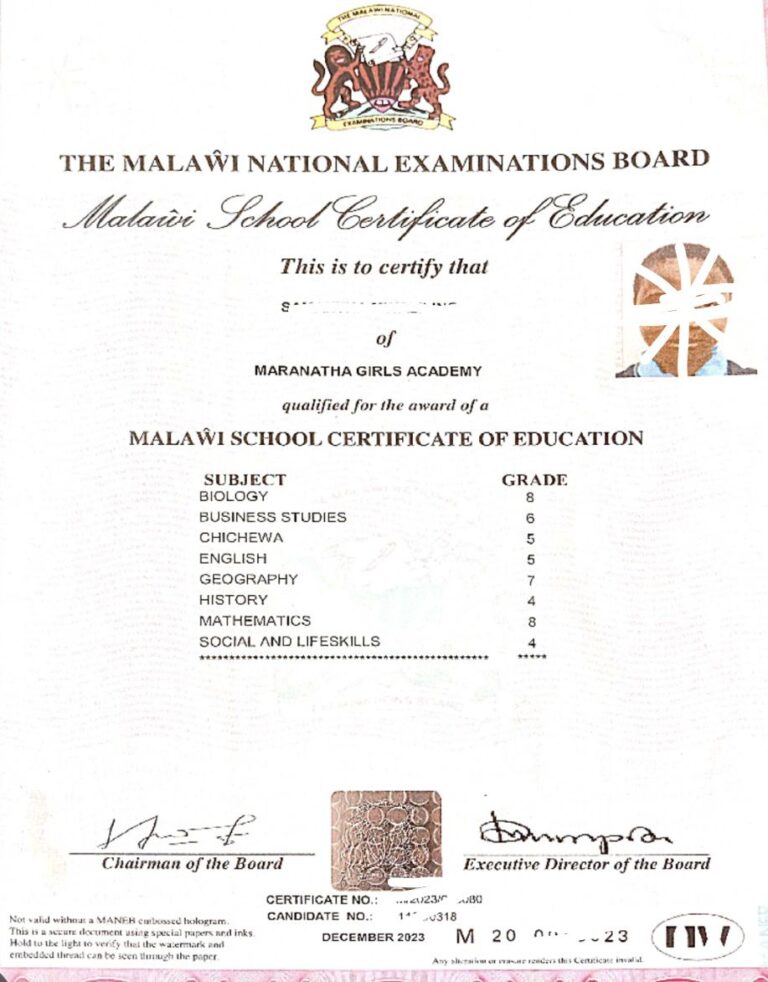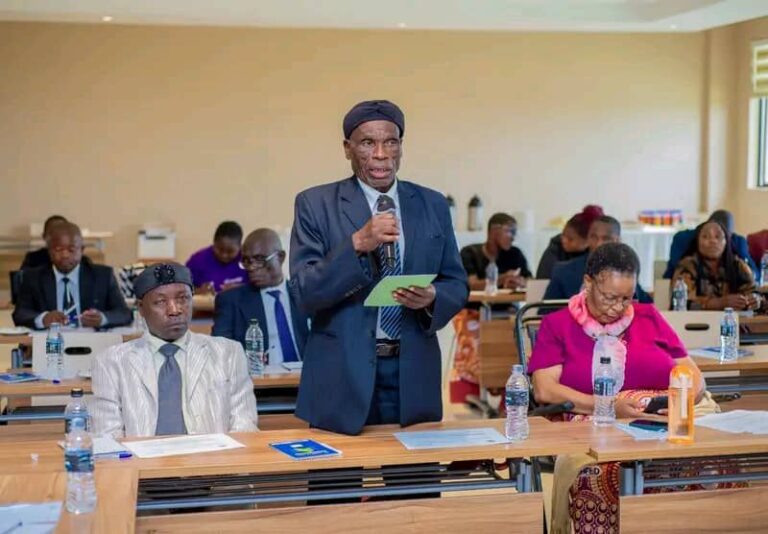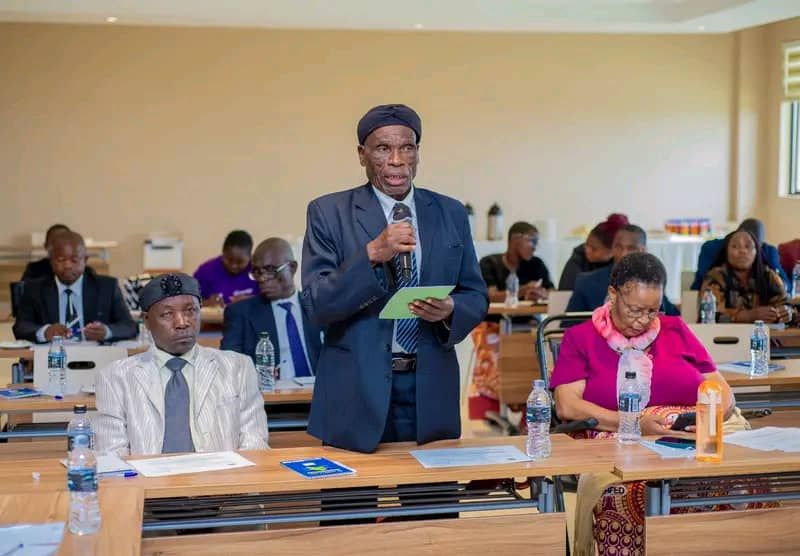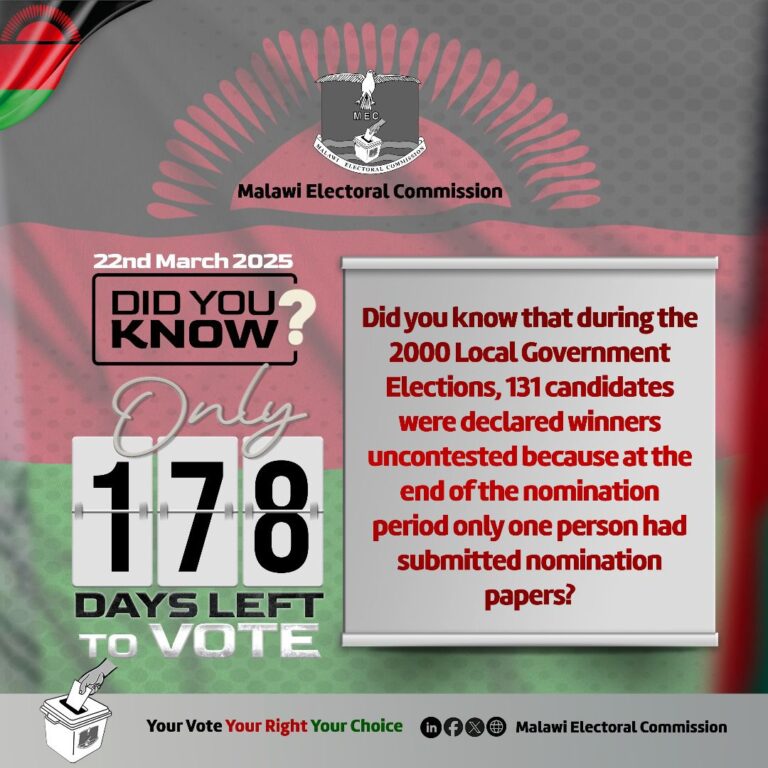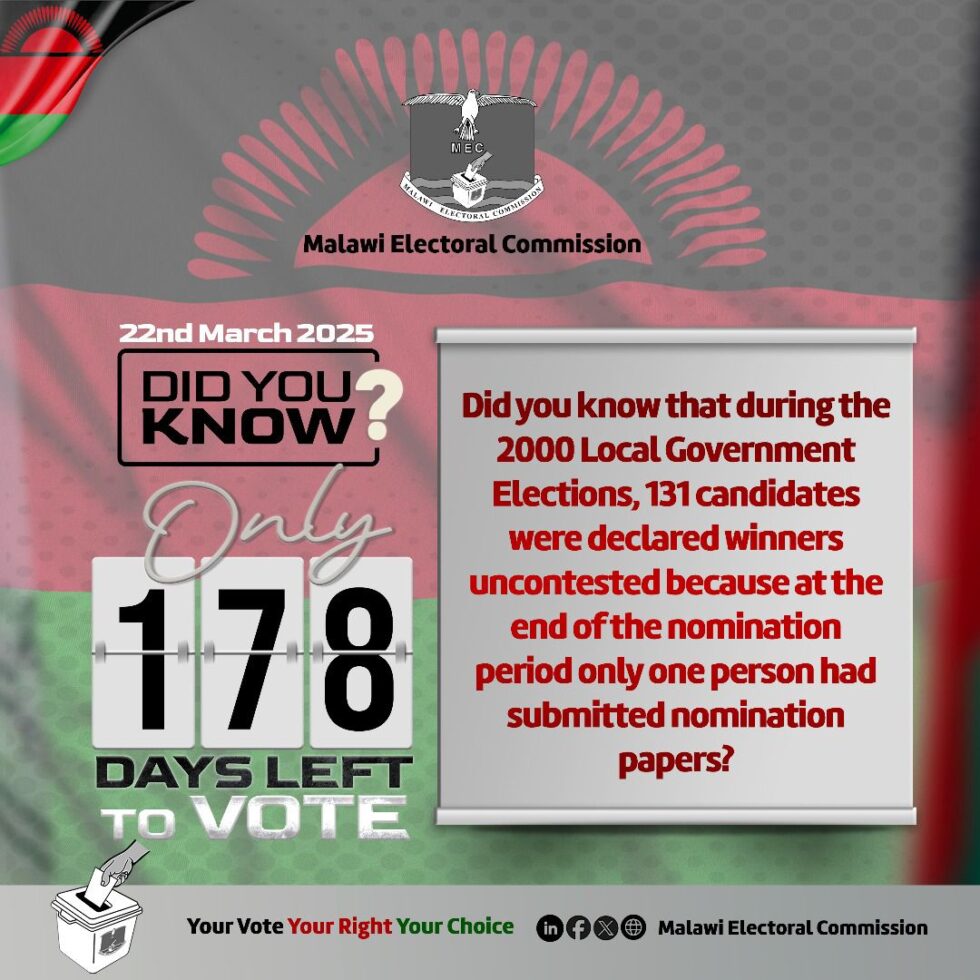By Jones Gadama
The Office of the Registrar of Political Parties (ORPP) has officially registered three new political parties, namely the Patriotic Citizens Party (PCP), the Solidarity Alliance Party (SA), and the Anyamata Atsikana Azimai Party (AAA).
This move comes after the parties submitted their applications between July and November 2024, undergoing rigorous scrutiny before being granted official status

According to Dr. Kizito Tenthani, the Registrar of Political Parties, the registration process was more stringent due to the ORPP’s sole dedication to implementing the Political Parties Act of 2018.
“Now that we have the ORPP solely dedicated to implementing the Political Parties Act, these new parties faced tougher scrutiny,” said Dr. Tenthani.
The registration process involved physical visits to the premises of the three parties to ensure they met the legal requirement of having a functioning party office.
Dr. Tenthani also issued a stern reminder to the 20 other registered political parties about the importance of maintaining operational offices. “I will be visiting each one of them to make sure that they have functioning party offices, as mandated by the law,” he said.
The newly registered parties are led by Jordan Sauti (PCP), Dr. Victor Madhlopa (SA), and Akwame Bandawe (AAA).
While celebrating their registration, these parties must remain mindful of the legal obligations and electoral performance requirements.
Dr. Tenthani cautioned the parties about the challenges ahead, reminding them of the provisions under Section 16(1)(b) of the Political Parties Act.
To avoid deregistration, registered political parties must secure at least one seat in parliament or 5 percent of the total national votes in parliamentary elections.
Alternatively, they must win two seats in local government elections or 10 percent of the total national votes in local government elections.
Failure to meet these thresholds in the upcoming September 2025 elections would mean that the parties must achieve these targets by 2030 to avoid deregistration. “This is a message to all registered political parties.
While you may be celebrating your registration, you must remain mindful of the legal obligations and electoral performance requirements.
The law is clear, and compliance is non-negotiable,” Dr. Tenthani emphasized.
As Malawi prepares for the 2025 general elections, the registration of these new parties is expected to shake up the political landscape.
The Electoral Commission has announced plans to extend the first phase of the voter registration exercise, currently underway in select parts of the country.
Additionally, the Commission has announced a supplementary voter registration exercise to address gaps identified during the initial phases of voter registration.
With the newly registered parties joining the fray, the competition for votes is expected to intensify.
As the parties gear up for the elections, they must ensure compliance with the Political Parties Act and meet the electoral performance requirements to avoid deregistration.
The registration of the three new parties marks a significant milestone in Malawi’s electoral process.
As the country prepares for the 2025 general elections, all eyes will be on these new parties and their ability to meet the challenges ahead.


